Below is my ERD and sample data. Note, I'm using Entity Framework and Code first to control my database.

For the project named Vacation, return all the DISTINCT users who have a "true" value in UserBooleanAttributes table for either the Parents or Teens rows defined in the UserAttributes table.
Here is my current attempt:
var myQuery =
from P in context.Projects
join UA in context.UserAttributes on P.ProjectID equals UA.ProjectID
join UBA in context.UserBooleanAttributes on UA.UserAttributeID equals UBA.UserAttributeID
join U in context.Users on UBA.UserID equals U.UserID
where P.ProjectID == 1
where UBA.Value == true
where (UA.UserAttributeID == 1 || UA.UserAttributeID == 2)
select new { uba = U };
This returns 6 users, with e@acme.org being listed twice. Is there a LINQ way of returning distinct values? I suppose I could convert this to a list then filter, but I'd rather have the Database do the work.
I'd rather avoid using lambda expressions if possible. Once again, I want the database to do the work, and not have to write code to union/intersect result groups.